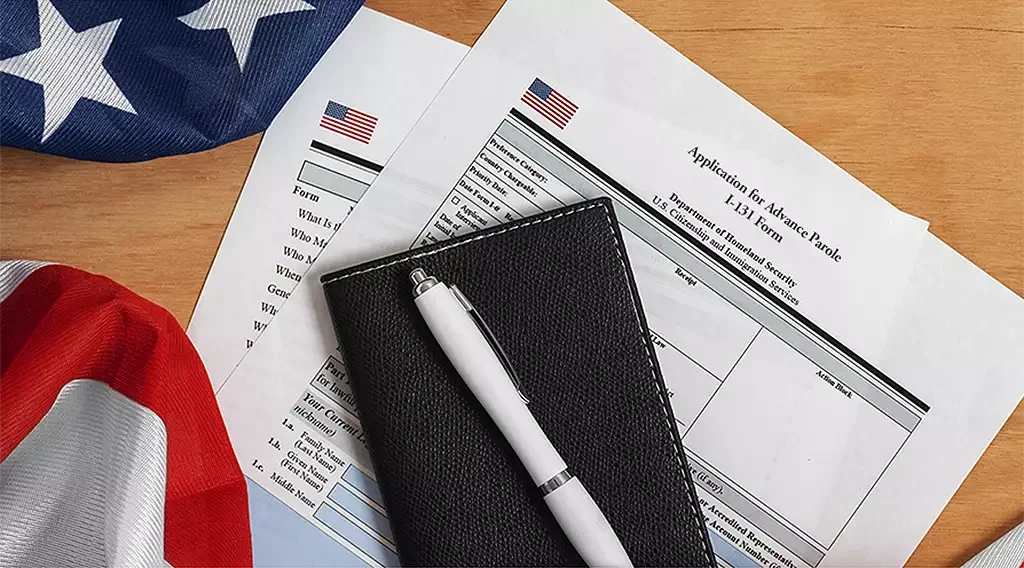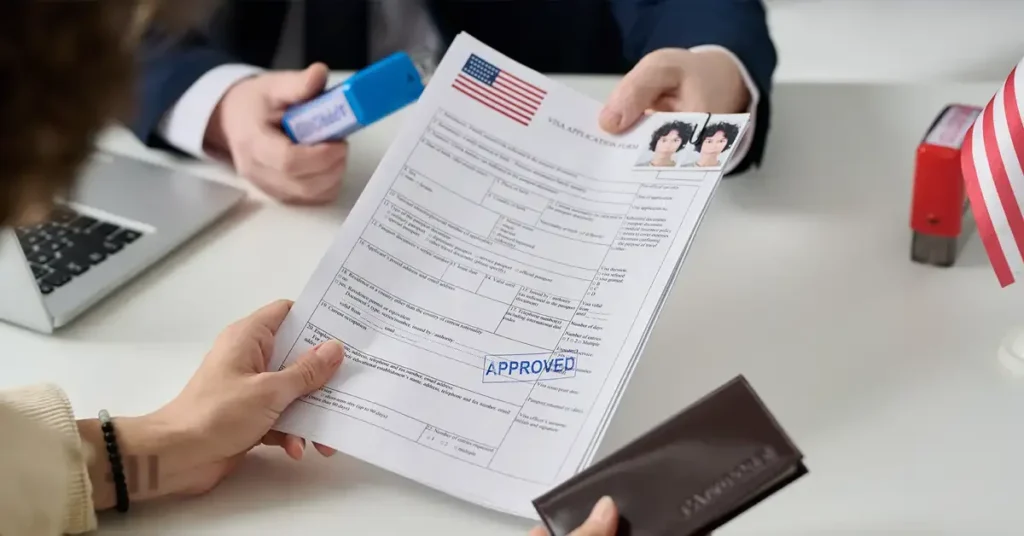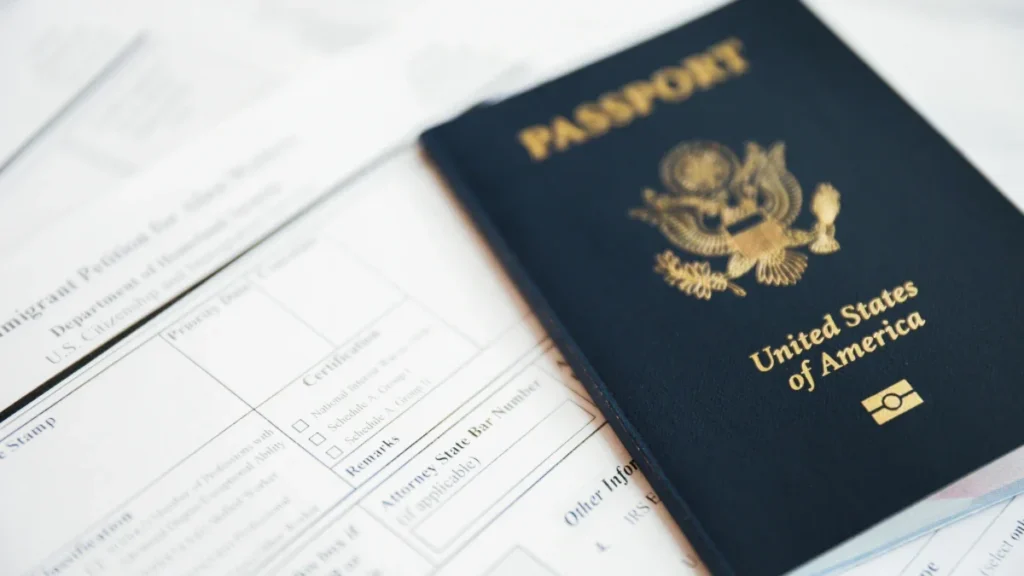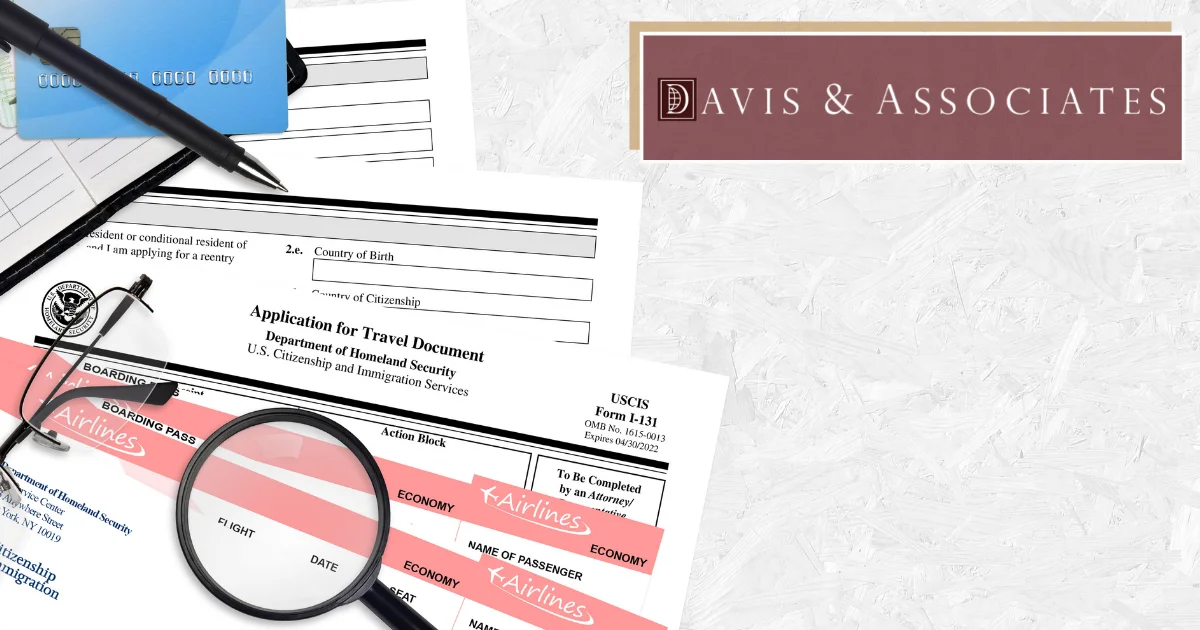The advance parole document plays a crucial role for individuals living in the United States with pending immigration applications. It is a special permission granted by U.S. Citizenship and Immigration Services (USCIS), allowing you to leave the country temporarily without abandoning your immigration status.
Whether you’re applying for a green card or asylum, understanding how this document works can protect your immigration journey from unnecessary risks.
What Is an Advance Parole Document and Why Is It Important?

An advance parole document is a travel permit issued by USCIS to individuals who are in the U.S. on certain pending immigration statuses. For example, those waiting for their green card, asylum approval, or DACA renewals often apply for this document to travel abroad.
Traveling outside the U.S. without it may lead to the denial of re-entry, which can delay or cancel your immigration process. That’s why advance parole is not just a form; it’s a protective tool for your legal status.
Who Qualifies for Advance Parole?

Eligibility for an advance parole is limited to specific immigrant categories. It’s not available to everyone, and misuse can result in serious legal consequences. To qualify, you must have a pending immigration application and be physically present in the U.S. at the time of filing. You must also refrain from traveling abroad while your application is being processed, as your request may be denied.
Individuals Commonly Eligible for an Advance Parole :
- Adjustment of Status (Form I-485) applicants
- DACA (Deferred Action for Childhood Arrivals) recipients
- Asylum seekers with pending applications
- TPS (Temporary Protected Status) holders
Applicants must be physically present in the U.S. when applying and must not have left the country during the application process.
Advance Parole for DACA and TPS Holders

For DACA and TPS holders, the advance parole can create potential pathways to legal status. Lawful re-entry may help fulfill specific green card eligibility requirements.
While it offers new legal options, it does not automatically make you eligible for adjustment of status. It only protects you from penalties related to re-entry.
Because each case is unique, consulting an immigration attorney is highly recommended before applying for or traveling to the United States. Proper guidance can prevent costly mistakes.
Application Process for Advance Parole Documents
Applying for an advance parole documents require careful preparation. Here’s a step-by-step breakdown to make the process smooth.
You’ll need to fill out Form I-131, Application for Travel Document. Attach two passport-sized photos, proof of your current immigration status, and a copy of your government-issued ID. The advance parole document plays a crucial role for individuals living in the United States with pending immigration.
After submission, USCIS may take several months to process your request. Emergency requests can be expedited under specific circumstances.
Important Requirements to Remember
- You must not leave the U.S. before the document is approved.
- Traveling without it cancels your pending status.
- USCIS does not guarantee re-entry even with the document.
Types of Situations Where an Advance Parole Document Is Needed
An advance parole document is meant for serious and valid travel needs, not casual trips or vacations. USCIS expects applicants to provide strong, well-documented reasons to justify their travel request. Using this document for non-essential purposes can lead to denial and possible delays in your immigration process.
Medical Emergencies Abroad
If you or a close family member faces a medical crisis outside the U.S., an advance parole document allows you to travel urgently without abandoning your pending immigration case. Substantial evidence, like hospital letters or doctor reports, is required to support your application.
Visiting Critically Ill Relatives
One of the most accepted reasons for using an advance parole document is to visit a seriously ill family member abroad. USCIS considers this a humanitarian ground, mainly when supported by medical records or a letter from a doctor. Always include detailed proof to strengthen your case.
Attending Educational or Work-Related Conferences
If you need to travel for academic or professional purposes, an advance parole document can allow you to re-enter the country temporarily. Conferences, seminars, or official training programs abroad may qualify, provided you submit strong proof and a valid invitation letter.
What Happens If You Travel Without an Advance Parole Document?
Leaving the country without advance parole while your green card or asylum case is pending can be disastrous. USCIS may treat your application as abandoned, which would result in delays, loss of benefits, or worse, denial.
Even if you reapply, there’s no assurance you’ll regain your previous standing. That’s why skipping this step is never worth the risk.
Difference Between Advance Parole and Reentry Permit
People often confuse advance parole with a reentry permit. While both allow travel, they apply to different groups of people.
Advance parole is for those without permanent residence. A reentry permit, on the other hand, is for green card holders who need to stay outside the U.S. for more than a year.
Use Advance Parole If:
- You are waiting for green card approval
- You are a DACA or TPS holder
Use Reentry Permit If:
- You are a green card holder
- Planning extended travel beyond 12 months
Conclusion:
The advance parole documents are not just a travel permit; it is a critical legal safeguard for individuals with pending immigration status. It allows you to travel for valid reasons without risking abandonment of your green card, asylum, or other applications. Failing to complete this document can result in serious consequences.
For those under DACA or TPS, it may even open pathways to future permanent residency if used correctly.










